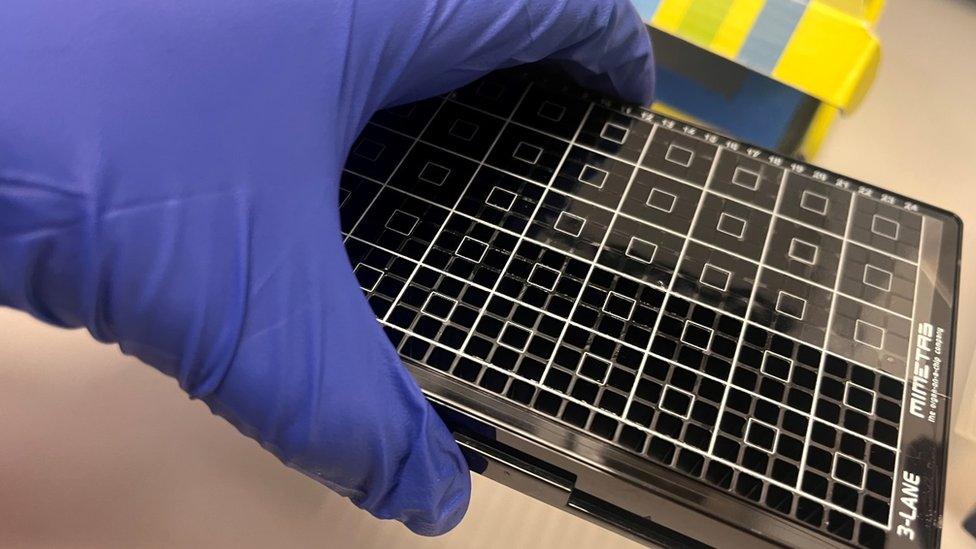Dundee scientists in placenta stem cell breakthrough
- Published

Each plate can hold around 40 micro placentas
Micro-placentas grown from stem cells could transform research into life-threatening conditions in pregnancy, say university researchers.
The breakthrough at Dundee University allows scientists to study the workings of the organ in 3D for the first time, without risk to a mother or her foetus.
Around 40 micro-placentas can be held on a plate at the same time for study.
The iPlacenta project is the result of four years of research and £3.9m in funding.
Team leader Dr Colin Murdoch said: "iPlacenta can be utilised by the pharmaceutical industry to research the interaction between drugs and the placenta.
"This allows drug companies to look at the organ in a more physiological format and could have a potentially transformative impact on medical care for pregnant women."
The team said the placenta is one of the least-studied organs in medical science.
It allows nutrients to pass from the mother to the foetus while allowing waste to return to the mother's bloodstream.
It also offers protection to the unborn baby against bacteria, though viruses can still be transmitted.
However, a failure by the placenta to function correctly can jeopardise the health and life of both foetus and its mother.
The British Heart Foundation said that conditions such as pre-eclampsia affect as many as one in 25 UK pregnancies.